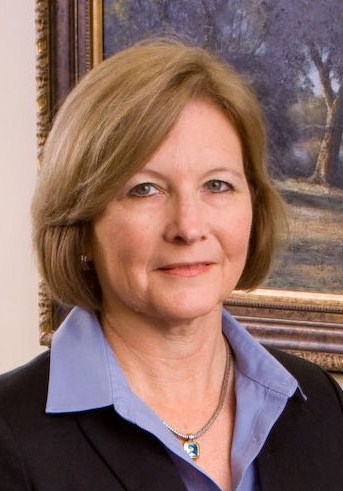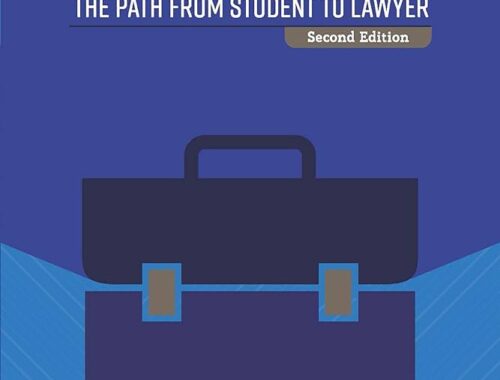By: Daisy Hurst Floyd, University Professor of Law and Ethical Formation and former Dean, Mercer University School of Law
I’ve been thinking about the lawyer’s professional identity and legal education’s role in developing that identity for almost two decades. Through it all, I’ve struggled with two questions. First, what do we really mean when we use the term “professional identity? Second, how should our work overlap with lawyers’ identities outside of their professional roles? It seems that we lack a clear, shared definition of professional identity; much of the work on professional identity formation, including my own, has been more about the why and how than the what. In this piece, I offer some thoughts about the what. In two later postings, I will address the why and how.
The two questions above occupied much of my summer as I worked on a forthcoming book about professional identity. My research led me to develop a model that addresses both what we mean when we talk about professional identity and also its overlap with personal identity. This posting describes that model; I welcome your reaction to it.
In our book, THE PATH FROM STUDENT TO LAWYER: THE FORMATION OF PROFESSIONAL IDENTITY, my colleagues Pat Longan, Tim Floyd, and I used the following definition of professional identity: it is a lawyer’s deep sense of self in role, which allows the lawyer to fulfill the public purposes of the profession and live a life of fulfillment and satisfaction. This definition places our work within virtue ethics and claims that identity is a matter of character. It also connects a particular kind of identity with the desired outcomes of ethical action and well-being.
While this definition focuses helpfully on the lawyer in professional role, it lacks full consideration of a person’s deep sense of self outside of that role. After all, a sense of self in role as a lawyer is just one part, albeit a large one, of any lawyer’s overall deep sense of self. All of us inhabit multiple roles in our lives, and a lawyer’s professional identity exists in that broader context. We know that when a lawyer’s identity in other roles is not consistent with their professional identity, the resulting dissonance is likely to result in unethical behavior and a lack of well-being. It is therefore incumbent upon us to help our students situate their evolving professional identities within their overall identities. To do that, we need to be informed by understandings of identity outside of the particular context of professional identity.
During the twentieth century, social scientists addressed a question that had occupied philosophers for centuries: What does it take to lead a good life in which one is a good person (acts ethically) and flourishes (experiences satisfaction and fulfillment)? This is really the same question that we are asking about professional identity: what does it take for a lawyer to lead a good life, one in which the lawyer is effective and ethical and also flourishes?
A synthesis of the literature on virtue ethics, identity, and character reveals three components of a sense of self that will support a good life across multiple roles. These three components can help us understand professional identity. They are: (1) internalization of certain essential core virtues; (2) cultivation of individual strengths and understanding of individual traits; and (3) a purpose that informs actions and provides meaning.
Core virtues
Virtue ethics posits that a person must internalize certain virtues to be a person of good character. Aristotle famously developed a list of such virtues, and that list has been debated and revised since by philosophers, theologians, and social scientists. Christopher Peterson and Martin Seligman, leaders in the field of positive psychology, have identified six essential core virtues, finding “a surprising amount of similarity across cultures and…a historical and cross-cultural convergence” around these virtues. According to them, a person who internalizes these six virtues will be a person of good character and likely to live a life of ethical action and fulfillment. All six are essential; if any is missing, a person will not be a person of good character.
The six core virtues (which they call “the Big Six”) are:
- wisdom: the acquisition and use of knowledge;
- courage: the exercise of will to accomplish goals in the face of opposition, external or internal;
- humanity: interpersonal strengths that involve tending and befriending others;
- justice: healthy community life;
- temperance: protection against excess; and
- transcendence: forging connections to the larger universe and providing meaning.
Individual Strengths and Traits
As essential as the core virtues are, however, they are not the total of a person’s identity. Each of us is different from every other person and possesses individual traits, which make up the second component of identity. Some traits are strengths that will support implementation of the core virtues, while other traits may present challenges. Some traits are inherent and even immutable, such as musical talent, shyness, or athletic ability. Others are more malleable, such as messiness, a dislike of confrontation, or a tendency to procrastinate.
Peterson and Seligman have identified twenty-four character strengths, each supportive of a particular core virtue. They include such traits as creativity and open-mindedness (supportive of wisdom): persistence and integrity (courage); love and social intelligence (humanity); humility and self-regulation (temperance); citizenship and leadership (justice); and gratitude and hope (transcendence). Most people can readily identify between three and seven of these strengths as their own, which Peterson and Seligman label “signature strengths.” A signature strength is one that “a person owns, celebrates, and frequently exercises.”
While no one is likely to possess all twenty-four, they have found that a person who possesses at least one strength within each virtue will be a person of good character. No one is likely to possess all, but their research indicates that most people possess at least two within each virtue.
Purpose
The third component of a healthy sense of self is purpose. It builds upon the first two, but it is greater than the sum of the parts. A purpose allows a person to live congruently with the sense of self that has evolved from internalization of the core virtues and the appropriate traits. Without a purpose, one is unlikely to live an ethical life and find fulfillment, even if they possess the core virtues and essential strengths.
Self-determination theory helps us understand the relationship between purpose and identity through its research on motivation. A person is intrinsically motivated when their actions are either inherently enjoyable or help fulfill an important goal in their lives. For example, a person may spend time with friends or exercise because those things are inherently enjoyable. However, they will spend time cleaning trash from the side of the road, not because it is inherently enjoyable but because it fulfills a purpose of caring for the environment. In contrast, a person is extrinsically motivated when acting to please someone else, earn a reward, or avoid something unpleasant, such as guilt, anger, or pain. Everyone experiences both intrinsic and extrinsic motivations, but a person who is primarily motivated by intrinsic motivations is more likely to act ethically and experience fulfillment than one who is motivated primarily by extrinsic motivation. One who is primarily motivated by extrinsic values is likely to experience angst and distress.
Without a guiding purpose, people are more likely to give into pressure to act inconsistently with their identities because they don’t know themselves well enough to act primarily out of intrinsic motivations. Likewise, a person who has not taken the time to develop the foundational virtues may have a desire to resist extrinsic motivations but will find it hard to do so because of failure to internalize the virtues that support such action. For example, without courage, it will be difficult to resist extrinsic motivations even in the face of conflicting intrinsic ones.
Sophie, an entering law student
To illustrate this model of identity, we can imagine Sophie, an entering law student. Sophie describes herself this way: “I am friendly, opinionated, and stubborn. I do my best to be kind to others, but sometimes my stubbornness makes it hard to be patient when I disagree with someone or think they are doing something they shouldn’t. I have a good sense of humor, but sometimes I show that through sarcasm, which can be hurtful when I don’t intend it to be. I care about others, and I feel good when I do things that make life better for others. I am quiet and a bit shy; I like to read and be by myself for at least part of every day, even though I also enjoy being with friends and family. I value honesty and believe that it is important not to compromise my ethical values. I want to be a friend that others can always rely upon. I don’t like conflict and prefer that everyone get along. I am learning to stand up for myself and others when necessary, even when confronting others is uncomfortable, but I want to continue to get better at it because sometimes I let things go that I shouldn’t. I am curious and like to travel to learn about other cultures, but my shyness sometimes prevents me from taking full advantage of being in new situations. I believe that we are all connected in some way and engage in spiritual practices that are important to me. Because I want to improve my community, I was a student government officer and involved in a couple of nonprofit community organizations in college. I am a good athlete and was really successful in high school and college sports. I lack musical ability, but I appreciate good music, love to go to concerts, and have an interest in learning about singer-songwriters and their work. I don’t like animals, and I’ve never wanted a pet. I’ve always liked to be around children and thought about being an elementary school teacher. I want to do good work in the world that is useful to others, but I’m not sure what that will be.”
Sophie’s answer tells us a lot about her. As an introvert, Sophie knows that being in social situations will require that she take some time to be alone to restore her energy; an extrovert will know that too much alone time will be draining and that they need to schedule time for interactions with others. Sophie recognizes that her personality traits of stubbornness and conflict avoidance may present challenges to being the person she wants to be. Because Sophie is curious about the world and likes to travel, she will make different decisions about how to spend her time and money than someone who does not enjoy or value traveling. Because Sophie values spiritual practices, she will schedule time to participate in such practices, just as she spends times in student government or volunteer positions. She will not spend her time or money on pets.
We also see that Sophie inhabits different roles in her life—she is a friend, family member, leader, student, and volunteer. Sophie’s sense of self will affect how she handles each of these roles, and it will allow her to live authentically across multiple roles even as her identity might manifest differently across those roles.
Sophie’s response demonstrates the requisites for a good life. First, she reveals all six of the core virtues: wisdom, courage, justice, transcendence, humanity, and temperance. Second, we see at least nine of the twenty-four essential strengths: curiosity, persistence, integrity, kindness, fairness, appreciation of excellence, humor, self-regulation, and spirituality. Sophie is aware of individual traits that sometimes are not strengths. She dislikes conflict, which might support kindness, but also could prevent honesty or integrity. Her humor can transgress into hurtful sarcasm, and her stubbornness may impede her ability to listen or empathize. Finally, Sophie has articulated a purpose for her life. She wants to do good work and be useful to others, even as she is unsure what form that purpose will take.
Sophie, like most of our students, enters law school with a healthy sense of self that will continue to develop over a lifetime. Our collective task is to help her both cultivate a new professional identity and to integrate that identity with the evolving sense of self that informs the other roles in her life. We want her to internalize the professional virtues, to acquire strengths that support the virtues while being aware of traits that may impede them, and to develop a professional purpose. Importantly, we want Sophie to develop a professional identity that is consistent with her identity across the other roles in her life, avoiding the dissonance that can otherwise occur. To paraphrase Atticus Finch, we want Sophie to be “the same person in town and at home.”
If we apply the three part model of identity across roles to professional identity, we can identify three analogous component parts:
Core virtues of the Profession
Much like Peterson and Seligman’s “Big Six” core virtues, Pat Longan has identified six core virtues of the legal profession. They are:
- competence: commitment to excellence, including legal knowledge, skill, diligence, and judgment;
- fidelity to the client: fulfillment of the duty of utmost good faith and devotion to the client—a fiduciary disposition;
- fidelity to the law: faithfulness to the law and its institutions;
- public-spiritedness: commitment to public service, including ensuring access to justice and appropriate self-regulation of the profession;
- civility: a commitment to be courteous, cooperative, and honest and not to engage in abusive tactics;
- practical wisdom: the master virtue, allowing the deployment of the other virtues in particular situations in the right amounts, in the right way, and for the right reasons.
Each of these six virtues is essential to being a good lawyer, and internalizing each will support ethical action and well-being. Just as with the Big Six core virtues, if any one of these is missing from a lawyer’s identity, that identity will be incomplete. Sophie’s developing professional identity must include exposure to the core virtues of the profession and opportunities to internalize and practice them.
Individual strengths and traits
To live out the six virtues, a lawyer must also develop particular lawyering strengths, and we can turn to numerous sources to discover what strengths are necessary to support a lawyer’s professional identity. cFor example, Educating Tomorrow’s Lawyers’ comprehensive surveys of lawyers identifies over 70 attributes that a lawyer needs upon entry into the profession. Shultz and Zedeck identified a list of 26 lawyering effectiveness factors, and Hamilton and Bilionis synthesize the literature to develop their three-sided model for professional formation. Some of the identified strengths include those traditionally taught in law school, including legal research, legal analysis and judgment, and oral and written communication skills. Others are only now being recognized as essential, such as grit and resilience; teamwork; a growth mindset; commitment to continued excellence; empathy; and listening.
Sophie’s professional identity is fostered as she develops these numerous essential strengths, but she must also be aware of individual traits that might challenge her professional identity. For example, Sophie can be stubborn and unyielding when she thinks she’s right. That can be a strength as a lawyer if channeled into resilience or fortitude, but it will interfere with good lawyering if it impedes listening or empathy. Her tendency to avoid conflict could impede the virtues of fidelity to the client if she is unable to be a sufficient advocate, or impede the virtue of fidelity to the law if she is reluctant to tell her client that something the client wants to do is unethical. Our support of Sophie’s developing professional identity should include helping her cultivate the strengths that support the six virtues, identify those traits that present challenges, and practice overcoming the challenges.
Purpose
Finally, Sophie’s professional identity will include a purpose for her professional life. In law school and beyond, she will discern how her role as lawyer can be used consistently with the core personal and professional virtues and her individual strengths and traits. It may be that Sophie won’t thrive as a litigator even if she has strong advocacy or communication skills because she dislikes conflict and is an introvert. Nor is she likely to be happy devoting her life to animal rights, despite its importance, as she expresses a dislike for animals. Sophie may, however, find great satisfaction in working to strengthen education, eliminate child abuse, or reform juvenile law. Her appreciation of music may allow her to thrive in legal work for artists.
Larry Krieger and Kennon Sheldon have demonstrated the importance of purpose to professional identity. Their research shows that lawyers with the greatest well-being are primarily motivated by intrinsic values and that the extrinsic values of law school, such as grades, class rank, and law review membership do not correlate with well-being. Yet, they have also shown that law school rapidly shifts students from intrinsic to extrinsic motivations. We need to make students aware of the pitfalls that follow from that shift and give them the tools and space to listen for their purpose. Lawrence S. Krieger and Kennon M. Sheldon, What Makes Lawyers Happy?: A Data-Driven Prescription to Redefine Professional Success, 83 Geo. Wash. L. Rev. 554 (2015).
Frederick Buechner’s well known definition of vocation as the place where one’s “deep gladness and the world’s deep hunger meet” is affirmed by empirical research. Sophie could be doing great good in the world, but if what she is doing is not aligned with the core personal and professional virtues and her individual strengths and traits, she is unlikely to thrive and is likely to give in to unethical behavior. If, however, Sophie’s professional work aligns with her identity—both as a lawyer and across the other roles in her life—she is more likely to lead a life in which she acts ethically, fulfills the public purposes of the profession, and is fulfilled. That benefits us all.
Conclusion
We all want our students to live lives of ethical action and well-being. By focusing on the “what” of professional identity, we move closer to that goal.

Daisy Floyd is the University Professor of Law and Ethical Formation, and also the former Dean at Mercer University School of Law.


